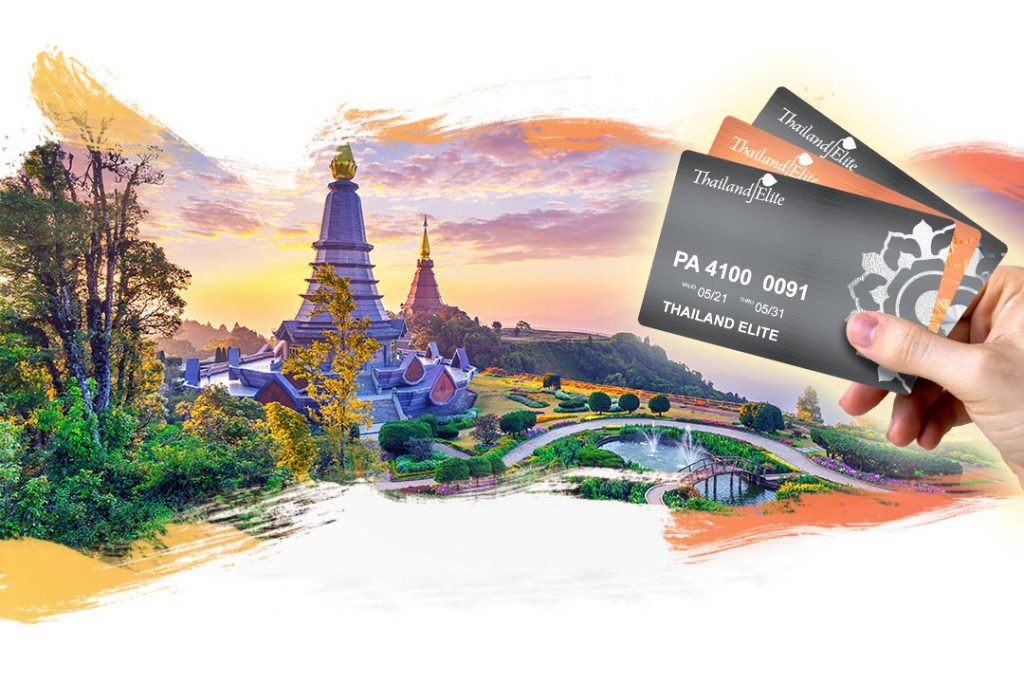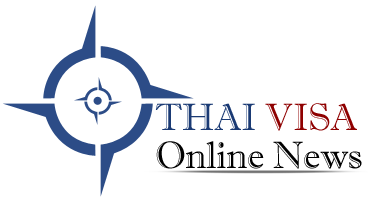Home

About Thai Visa News
Created in 2011, ThaiVisa News provides immigration information, immigration news, and travel guide and updates for people wishing to visit Thailand. The gateway to detailed information and requirements about Thai Visa application, whether researching travel opportunities, seeking information on travel restrictions, or looking for advice and assistance on how to move into Thailand. The comprehensive information of this website means that all answers to your immigration questions are at your fingertips.
Latest News


Over the past years, the fast growing economy of Thailand has resulted to even more capitalization and has also continually stirred up greater employment opportunities for both the locals and foreign job seekers alike in the country. Though a lot people might perceive a greener pasture in the western part of the globe, still many others consider an encouraging career path inside Thailand.
If you are one of those who can picture a promising professional career in this country, one thing you must survey are the legalities involved in the process. Consider the guidelines below to gain a better understanding on how you can become a legal foreign worker in Thailand.
Applying for the proper visaIn order to visit and stay in Thailand, there are many types of visa that can be applied for which must follow the purpose of your travel. In view of this writing, the non-immigrant visa category “B” is the appropriate type to enter the country to work. See what is a Non-Immigrant B Visa here.
You should note that there is no direct application to get this type of visa when inside Thailand (an initial non-immigrant “B” visa must be obtained first either from your home country or from the neighboring countries of Thailand). It is viable, therefore, that you make advance planning and preparation before visiting Thailand. Once you have sorted out all the required documents and paper works, then you should be all set.
While most of the documents needed for non-immigrant “B” visa are to be provided by the prospective employer, the other basic requirements are listed below:
- Passport which is valid for more than 6 months.
- Proof of sufficient funds of 20,000 baht per person and 40,000 baht per family accordingly.
- Recent passport-sized photo which was taken within the past 6 months.
- Completely filled out visa application form.
Under the Thailand laws and regulations on employment, foreigners are required to get a work permit to be able to work or legally participate in some particular activities inside the country. Otherwise, they will be in violation of the law and may be at risk of facing prosecution, fine or even imprisonment.
You should also remember that during an application for the work permit, a valid non-immigrant visa on the business category must be readily available.
When you find the opportunity to potentially land a job in Thailand, it is important to coordinate all the legal processes of becoming employed with your prospective company. After all, foreign nationals can only become legally employed in Thailand after having completed all valid work documents.
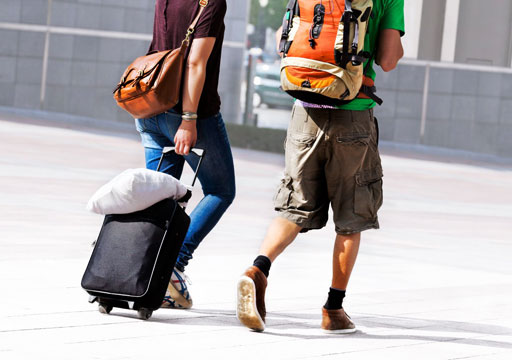
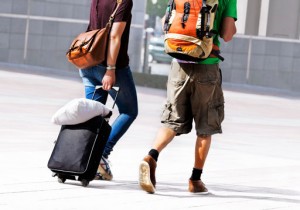
After several days since the Bangkok Shutdown has virtually ended, the Kingdom of Thailand is expected to witness a bounce back in their tourism after a resounding drop on the number of foreign tourist arrivals during the heat of the anti-government protests. More people, especially the foreigners, consider this a very welcome news. It was a relief to many that the situation is slowly getting back to normal, at least in many parts of the country that were hammered and affected by the political rallies.
Things to Consider When Traveling to ThailandWith the lesser threat of violence, the country is eyeing more foreign nationals in the coming days to be taking a trip to Thailand for a good holiday or for a longer term of visit. While it may be enthralling to think about the after-arrival experience, travelers should also pay attention to the following reminders when considering to travel to Thailand:
- The need for a visa
One logical question when going to an international travel is whether a visa is needed or not. This is quite relevant to the intended period of stay in the country. The government of Thailand has concluded different agreements with many countries on the subject of visa exemptions for a period of stay not exceeding 15 days or a month. It is best to check with the local Thai embassies or Thai immigration firms on the regulation of travel visa requisites to be on the safe side.
- To-take checklist
The required travel documents to enter Thailand are pretty much the same with many countries. For the most basic part, the foreign traveller must be in possession of a passport which is valid for at least six months following the intended departure date. Some Thai immigration officers also require at least two remaining unused pages in the passport for any necessary entry and exit stamps that may be issued.
A confirmed travel itinerary is another document that needs to be presented which shows that the foreigner has an onward ticket out; thus, eliminating the possibility of overstaying the visa for whatever reason.
And lastly, the foreigner is expected to show proof of funds for maintenance and accommodation. This may include sufficient cash, traveler's checks or credit cards that are internationally recognized.
Careful consideration on the things that need to be checked ahead of time before the travel is very important. This is to ensure making the most out of the whole travel experience. The part of the preparation to set out plan when finally inside Thailand should not be that hard since one can find almost anything in here and there are many diversions in the country that attract a lot of foreigners. After all, Thailand is claimed to be the most popular tourist destination in all the countries in Southeast Asia.
See also other services for Thailand Visa application.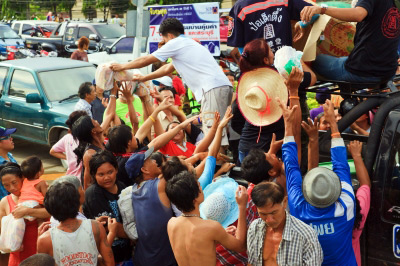
Over the past years, the Kingdom of Thailand has seen an increase in the number of foreigners who come to the country to participate in vast independent voluntary activities. There are many non-profit organizations out there that offer this kind of work. While it may be inevitable to deal with the Thai authorities during your stay, one must understand that proper procedure which adheres to the legalities imposed in Thailand must be set in place to avoid getting yourself into any kind of trouble. Taking into account considerations on doing the reasonable steps to satisfy the legal requirement, working in Thailand as a volunteer can be very rewarding.
Important Reminders to Become a Foreign Volunteer WorkerIf you wish to take part in a voluntary activity in Thailand, you must consider 2 important things:
Foreigners who want to engage in a charitable or voluntary activity in Thailand need to have a valid Non-Immigrant O visa. It is advised to contact a Thai consulate in your home country to find out about the process involved in the visa application process.
The holder of a Non-Immigrant O visa is granted with an initial period of stay not exceeding 90 days unless otherwise instructed by the Office of Immigration Bureau. Depending on the length of time the foreigner needs to participate in the voluntary work, they can obtain an extension of 1 year stay on a discretionary basis.
Getting a Work PermitEven if foreign volunteer workers are not paid for the activity that they are engaged to in Thailand, it is still legally required for them to have a proper work permit. In many cases, they may be staying in the country originally for tourism purposes and then eventually be involved in a voluntary activity. While they may think that they can get away with it without having to apply for a work permit, the risk of getting into a situation that can result in fines, jail, deportation and even blacklisting does not make a very good picture.
In order to obtain a valid visa and a work permit, there are evidences required to support your application for the purpose of volunteering. The following are documents from the organization that need to be presented:
- Sponsor letter which must be registered in Thailand.
- Registration and license.
- List of shareholders
- Board of Directors
- Profile and details of operation
- Map indicating the location
- Balance sheet
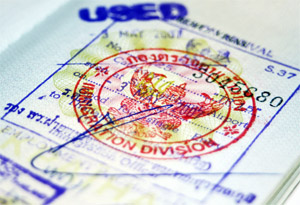
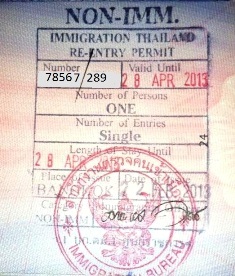
The following questions highlight when and when you don't need to secure re-entry permit:
- Am I allowed to travel outside Thailand if I am holding a marriage visa, retirement visa, permanent residency or work permit?
- What if I have a single entry business visa and I wish to visit other countries yet I still need to go back to Thailand, should I apply for a new visa?
- I arrived in Thailand using Visa on Arrival. I flew outside the country after a couple of days, with an intention to fly back to Bangkok and stay. Do I need re-entry permit?
Many foreigners overlook the importance of securing Re-entry permit before traveling outside the country which often result to cancellation of current Thai visa or even work permits. To avoid wasting resources like time, money, effort and going through another visa application and work permit processing, it would help expats to identify when one should secure re-entry permit.
Re-entry permit is a document in Thailand issued to foreigners who are holding single entry business visa, long term visas (such as: marriage visa and retirement visa which has already been extended to one year), permanent residency or work permit and would like to travel outside of Thailand for a short period with the intention of returning and continuing your current Thai visa where you had left off. This document provides authorization to the holder to leave the country for a few days, come back again to Thailand within your visa validity, without needing to get another visa. This must be obtained prior to leaving Thailand so holder won't lose visa status/work permit upon departure.
If you leave Thailand and return without a re-entry permit your one year visa will be invalidated and you need to start the process again from scratch. Ensure that you have applied for a single or multiple re-entry permit before you leave Thailand.
Visa Exemption
For foreigners who entered Thailand under the Visa Exemption Rule you are not qualified to obtain a reentry permit because you do not have a Thai visa.
Where to get Re-entry Permit?
You can secure Re-entry permit at Suvarnabhumi airport immigration check point or at the Immigration office in Bangkok.
Can I Apply Online?
Application for Re-entry permit must be made in person.
Requirements
- Passport or travel document (1 original and 1 copy)
- One recent photograph (4X6 cm)
- Re-Entry application form (TM-8 form)
- Application fee
Process
Application must be made in person one or two days prior to your departure.
Re-Entry Permit Fees
- Single-Entry Re-Entry Permit = 1000 THB
- Multiple Entry Re-Entry Permit = 3800 THB
Any long-term visas or work permit holders are allowed to travel outside Thailand as long as re-entry permit is secured prior to travel.
If a foreigner holds a single entry business visa, by securing re-entry permit there is no need to apply for a new visa because upon returning to Thailand the same visa can be used.
Foreigners who arrived in Thailand using Visa on Arrival (i.e. China, India, Russia, Taiwan nationals), securing re-entry permit is not necessary even though the holder will re-enter Thailand within that 15-day visa time-frame. When you leave the country, you would have to get a new Visa on Arrival on your next entry. There is no limit to how many times you can do this (Visa on Arrival).
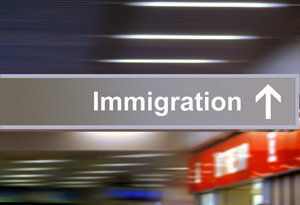
 It is an immigration rule that foreigners are not allowed to overstay in Thailand or else face the verdict of overstay fine at 500 THB per day maximum 20,000 THB, imprisonment or deportation. But does the same rule applies to the alien children who overstayed?
It is an immigration rule that foreigners are not allowed to overstay in Thailand or else face the verdict of overstay fine at 500 THB per day maximum 20,000 THB, imprisonment or deportation. But does the same rule applies to the alien children who overstayed?
Overstay fine exemption for children is an internal regulation from Immigration Bureau. Mentioned in the Section 84 of Thai Immigration Act 2522, "settlement rule or any conditions as the Settlement Commission may deem proper.” [1]
The general rule is that children below 15 years old who overstayed in Thailand will not be collected with fine. And when you and the child booked to fly out of Thailand, upon exiting the country via airport, the kid just has to go up to the overstay counter but is exempted of paying the fine.
Overstay Fine Exemption Doesn't Mean Non-ViolationWhy get a proper visa for your child when she can get away without it? When she doesn’t have to suffer the punishment, what prevents you as the child’s parent from taking the easier route?
For children who are long term overstayers in Thailand, parents have reason behind it. Since child is minor this responsibility lies on the parents. Maybe it’s about saving the cost, time, effort for visa application. Or maybe it’s because of lack of proper visa by the parents themselves (illegal status). By this explicit non- charge for children who overstay some parents might think it is not necessary to secure proper Thai visa for the kid. Or since kids can get away with the charges, filing a child’s visa is a choice.
It is important to obtain proper visa/extensions for children or take the effort of legalizing a child’s immigration status.Despite exemption from fine or criminal charges, there are direct and indirect consequences when children overstayed. One of them is to avoid the hassle as there had been reports of inconsistent implementation of this “non-payment of overstay fine for children” among Immigration Police Officers across Thailand especially if the child is exiting via any land border (border crossing).
Direct Consequence of Overstay
While adults automatically get charged for detention, overstay fine or deportation upon being caught in a check up stop and were asked for passports and valid visas, police officers will let go of the child and exempt the child from fine. Overstay issue for whatever reason and length is an offense of the Immigration Act 2522 regardless that the person involved is a minor (only 15 years old and below). This means that the child is staying illegally in Thailand. Upon exiting the country, the child has to go through the overstay kiosk and his passport will be stamped with overstay. With the parents’ negligence, the child becomes involuntary illegal immigrant.
Some Effects of Overstay are Not Felt or Realized BeforehandWhen a child overstays in Thailand and cleared his overstay by exiting the country, any previous overstay doesn’t affect future visits to Thailand nor future application for Thai visa. But the history of overstay offense might contribute in trying to enter in another country such as US, UK, Canada, Australia. In the event that the child applies for an entry visa to said countries, any past immigration offense, history of travel, applicant’s credibility will be put into consideration.
Sending a child to school in Thailand would require valid visas or extensions upon enrollment. Before accepting the child, school would ask for legal documents.
If a child is an illegal immigrant in Thailand, he is not receiving any health or security benefits from the government. When emergency happens such as accident, or when the child gets sick, he cannot resort to Thai government funds. Any insurance claim can be denied on the grounds of overstaying. Any probability of getting an access to child’s home country's health/security/benefit’s claim decreases.
Make sure your child can legally stay in Thailand by securing appropriate visa. Though there is no direct sanction for children who overstayed, abiding by the law would avoid immigration problems in the future.
1. Section 84 of the Immigration Act, B.E. 2522 states that, “In all offenses under this Act, except the provisions of Section 62 Para.1 Section 63 , 64, 71 and 82 Para.2. The settlement Commission, consisting of the Police Department’s Director General or Representative, the Public Prosecution Department’s Director General or Representative, and the Immigration Division’s Commander or Representative, as the, members shall have the authority to assign duty of settlement to the Inquiry Official or the competent official by fixing a settlement rule or any conditions as the Settlement Commission may deem proper. When the offender has paid the fine as stipulate, the case shall be deemed settled under the Criminal Procedure Code. When the offender has paid the fine as stipulate, the case shall be deemed settled under the Criminal Procedure Code.”
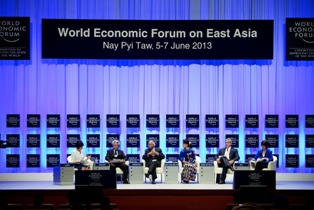
The ministers and tourism authorities of four ASEAN nations agreed to collaborate on a common smart visa system last June 5, 2013 at the 22nd World Economic Forum (WEF) on East Asia 2013. This is an effort to enhance tourism and foster economic growth in the East Asian region.
 Tourism leaders from Myanmar, Cambodia, Indonesia and The Philippines signed the "Statement of Intent on Smart Visa" held at Myanmar International Convention Centre in Nay Pyi Taw, Myanmar during the World Economic Forum on East Asia 2013. This new system is a single visa programme for tourism traveling on the countries mentioned above. Through the common smart visa system, movement of tourists across borders or traveling from one country to another will be facilitated more efficiently as compared to the traditional visa application. The new common visa system brings convenience to travelers in terms of visa processing.
Tourism leaders from Myanmar, Cambodia, Indonesia and The Philippines signed the "Statement of Intent on Smart Visa" held at Myanmar International Convention Centre in Nay Pyi Taw, Myanmar during the World Economic Forum on East Asia 2013. This new system is a single visa programme for tourism traveling on the countries mentioned above. Through the common smart visa system, movement of tourists across borders or traveling from one country to another will be facilitated more efficiently as compared to the traditional visa application. The new common visa system brings convenience to travelers in terms of visa processing.
The coordination of these 4 countries through common smart visa is geared towards the growth of the tourism and travel sector. Once implemented, more travelers are expected to come thus creating investment opportunities. This will promote labor in ASEAN region and will increase the region’s GDP. This new system will create economic integration for ASEAN Economic Community in 2015 since it promotes visa facilitation for travel.
The members of East Asian region (Myanmar, Cambodia, Indonesia and The Philippines) could maximize the benefits of tourism activities through "Statement of Intent on Smart Visa". By adapting a timely system, taking advantage of technology, and coordination with other East Asian nations, we are indeed heading towards a stronger ASEAN.
Thai Elite Visa
Thailand Elite visa is a special visa aimed for high networth businessmen, digital nomads, retirees, investors, high income individuals, and families looking to move in to Thailand. The Elite member or card holder has special privileges such as VIP treatment at the airport, exclusive spa and golf courses, special discount at major department stores and shopping malls, elite personal assistance, and many more. To learn more if Thailand Elite Visa is the most suitable long term visa for you, just click the link below.
